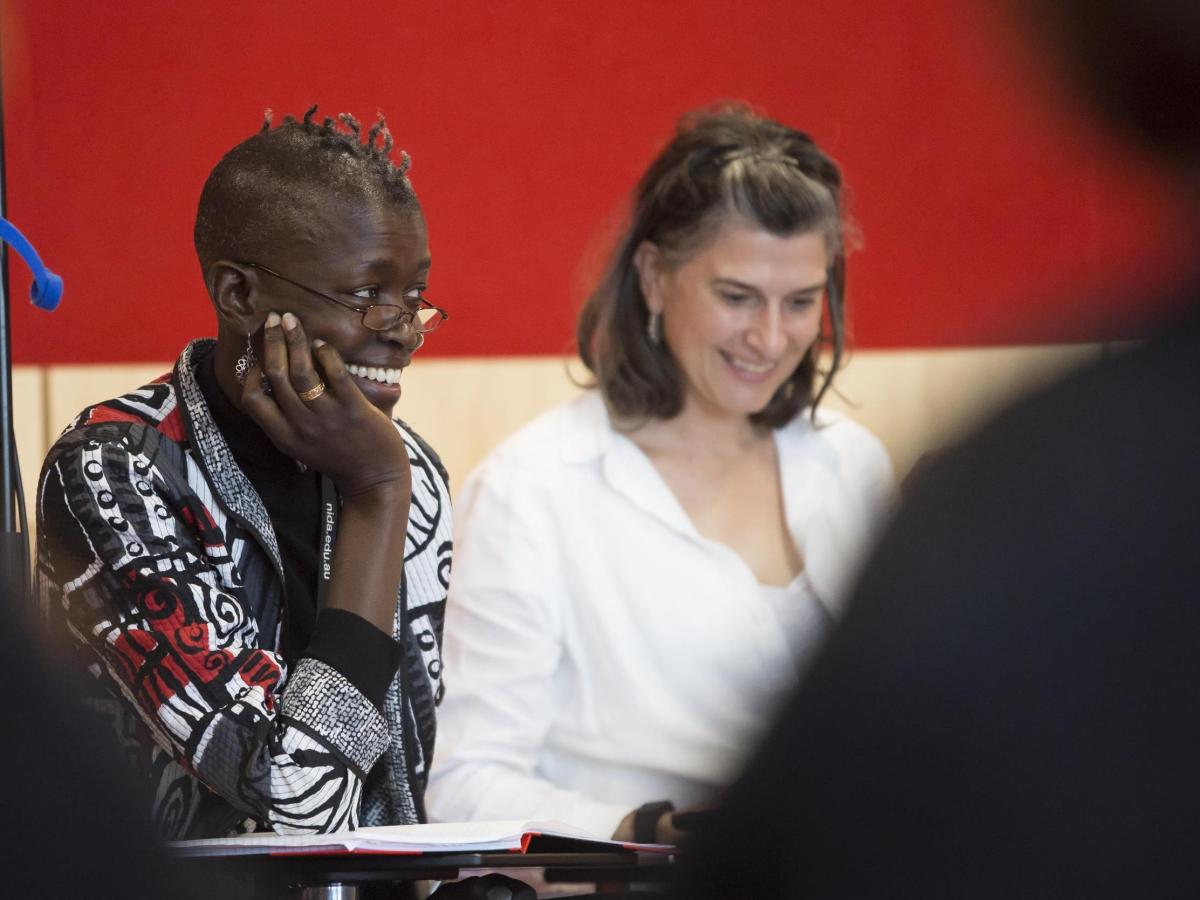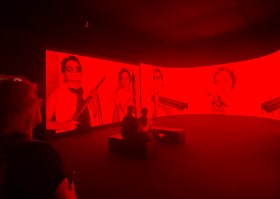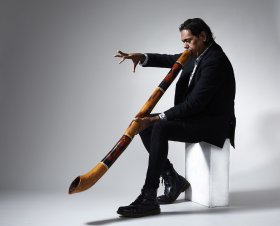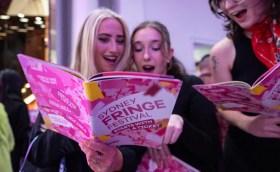Image: Supplied.
The new NIDA course, MFA Cultural Leadership, is designed for people who work in the arts industry, who thrive on innovation and are ready to dig deep into what it is to be a cultural leader.
Learn more about MFA Cultural Leadership at NIDA
Cultural leadership is about finding a balance between the myriad of choices we face in solving a problem or challenge, and seeking out new opportunities to solve them, said Dr. Cheryl Stock AM, Head of Cultural Leadership at NIDA. To do so, aspiring leaders need to have a broad knowledge of cultural policy as well as the ability to draw on their creative and personal experiences.
They have to be future focused, courageous and even rebellious at times in order to lead purposefully.
‘We are at a crisis point – people sense that. Perhaps we need to find ways around the current funding and policy crisis in the arts sector, by breaking through the habitual ways we have always done things. This can seem threatening: seeking out pathways to adapt to and lead change in a way that has the potential to transform the cultural landscape and provide us with the opportunity to see and do things differently,’ said Dr. Stock.
‘There’s a lot of talk about innovation and sometimes I think it is just a word. What is it? It really is thinking deeply, reflectively and critically, through issues; putting aside what we consider to be our modus operandi or the best way to do things, the ‘received’ wisdom we take for granted. Sometimes we need to be prepared to consider radical solutions to ongoing and unresolved issues. If we are at this crisis point, what are some of our options? How do we become resilient? How can we transform our practices?’
Experience things hands on
Leadership is not just about intellectual conversations and becoming more informed about policy, governance and the differing contexts of our sector, but also honing qualities such as intuition, perception, empathy and concepts of play, said Stock. This leads to foregrounding our experiential knowledge and working with multiple perspectives.
MFA Cultural Leadership students access current and continually updated information online through lectures with key industry practitioners, interviews with cultural leaders, and online weekly discussions, they also attend four five-day intensives on campus each year over the two year course duration. These intensives create the experience-driven environment that challenges students to see things differently.
‘In one of our intensives, the cohort participates in a sensorium which provides experiential learning through workshops in taste, touch, smell, sight and hearing. It’s a hands on approach integrated with scientific knowledge of the senses by experts in the field. This expands our knowledge of sensations that we are all very familiar with.’
This kind of experiential learning fosters innovation in its ability to broaden a person’s world view and encourages a sense of ‘play’ – another important attribute quality for a cultural leader.
‘The cultural leaders who make up our current student cohort are not all artists, but all support the arts in diverse ways. It is crucial for them to not only deepen their cognitive knowledge of culture and its varying contexts, but to develop a sense of experimentation, in a spirit of generosity, enabling them to advocate their vison in ways that go beyond language. In this endeavour, peer collaboration builds a strong community of practice amongst the cohort, based on mutual trust that allows a healthy divergence of opinion,’ said Dr. Stock.
Cross-pollination
Cultural leaders can transform arts practice by looking at how other sectors are solving some of the same challenges and developing a diverse approach that creates a space for the cross-pollination of ideas.
‘What is the future going to be when the support system is taken away from many people who are arts practitioners? I think cross-sector partnerships with health, education, science and especially cultural community engagement will be increasingly central to arts practice,’ said Dr. Stock.
‘Quite a few of our students are engaged with cultural enrichment programs in varying contexts. The diverse professional practices of our students enable multiple and contradictory viewpoints on environmental, sustainability, cultural policy and governance issues to be debated.’
The range of students who enrol in the Cultural Leadership MFA is very broad – from producers and CEOs of small organisations to curators, designers and people who work in policy. By encouraging more partnerships with other sectors, cultural leaders can build a more resilient future for the arts.
Collaboration also applies to the way managers and producers can adopt a symbiotic relationship with artists and creatives, said Dr. Stock.
‘Often there are CEOs who don’t have an arts background, and that’s great as they bring their specific and necessary skills to the table, but building a mutual understanding with the creative practice of the artistic team is crucial. It’s the same for the artists who develop greater agency through informed understandings of the importance of governance and the role of cultural policy in framing their practice. Whether we are going to react against the unstable and shifting conditions of current cultural practice, or work within them, we need to be informed and highly articulate in relation to major issues facing our sector’.
‘I think leaders have to meet challenges, they can’t avoid them, they can’t skirt around them; they have to be met head on.’
For more information about the courses on offer at NIDA visit nida.edu.au/courses.






